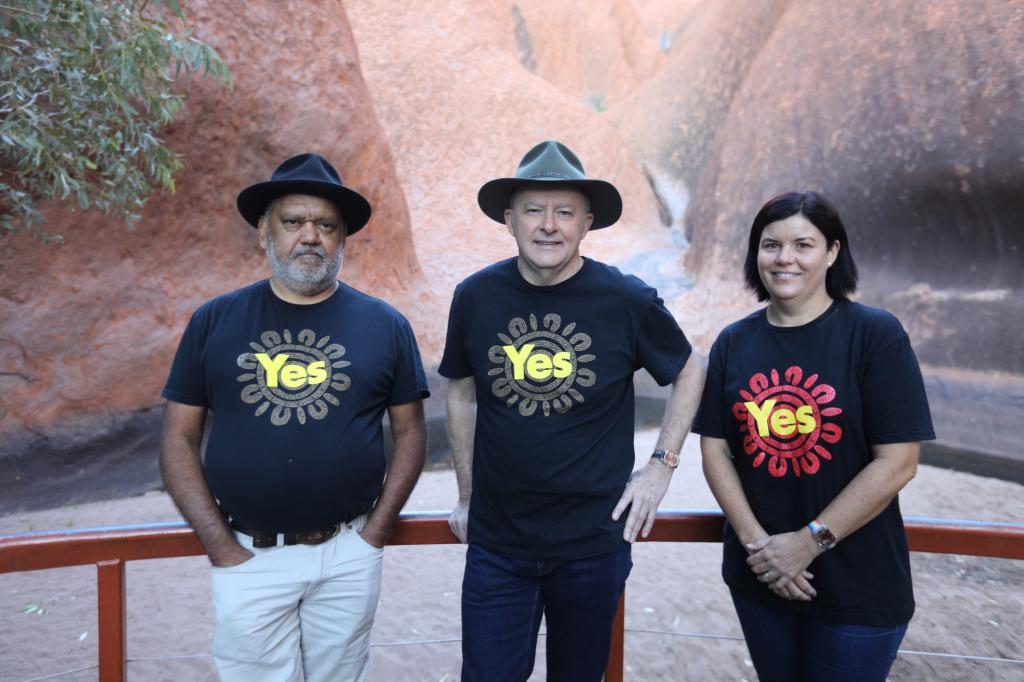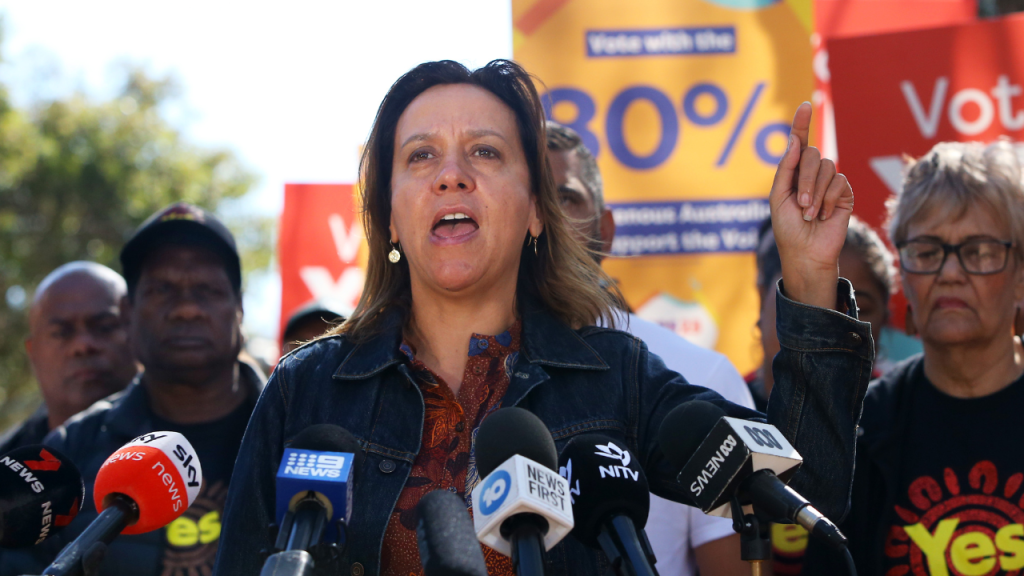The day is almost here. This weekend, on Saturday, 14 October, all remaining Aussies (who haven’t voted early) will put pen to paper to vote either “yes” or “no” for an Indigenous Voice to Parliament in the first national referendum since 1999.
Since announcing the referendum, Prime Minister Anthony Albanese has maintained that a Voice to Parliament is something that most First Nations people support. He has also thrown massive support behind multiple Yes campaigns and has consistently encouraged Australians to vote “yes” in this “once in a generation” vote to better the lives of First Nations people.
Per the Australian Electoral Commission, more than 2.2 million people have already cast their vote through early voting, and recent polls from YouGov show Australians opposed to the proposal are leading “yes” voters by 53 per cent to 38 per cent. Around 9 per cent of the people polled were undecided.
But what about the polls backing Albo’s sentiment that most Indigenous people support a Voice? Here’s the data you need to know before heading into the booth.
What’s the data on First Nations people supporting the Voice?
The most recent polling shows a majority of First Nations support for The Voice. The data, released today by the Sydney Morning Herald, shows 59 per cent of Indigenous voters are in favour.
The No campaign also shared its own “internal polling” of First Nations support for The Voice with the Murdoch-owned Sunday Telegraph, and those polls showed that a majority of First Nations people support it. Their data showed Indigenous support for the Voice sat at 60 per cent in February, and fell to 57 per cent in May.
Both the Yes23 campaign and the Uluru Statement of the Heart had earlier reported that 80 per cent or more of the Aboriginal and Torres Strait Islander community support the Voice.
Albanese has given quotes to the media along these lines — one example being his interview with Sydney radio station WSFM back in June, when he said: “Indigenous people overwhelmingly want it. All the surveys show that somewhere between 80 and 90 per cent of Indigenous Australians want this.”
The surveys Albanese and Yes campaigns are referring to come from two polls conducted earlier this year: one by Ipsos in January, and one by YouGov in March.

They found support for the Voice among First Nations Australians was 80 per cent and 83 per cent respectively, as reported by the ABC.
Separately, Reconciliation Australia, who conducts a survey every two years on attitudes towards reconciliation, have found consistent support for the creation of a national representative Indigenous body. Results show “87 per cent of Aboriginal and Torres Strait Islander people believe such a body should be protected under the constitution”.
So can we trust what these polls are saying?
Monash University’s politics senior lecturer Zareh Ghazarian said Ipsos, YouGov and Resolve Strategic (which carried out the poll reported on in the Sydney Morning Herald) are “reputable organisations”.
Dr Ghazarian told PEDESTRIAN.TV one poll might give us a snapshot of a view at a particular time, but combining the results allows us to see what the trend is showing us.
“All the polls that have been done are showing this trend and I think based on that, we can say that the poll trend is that there is support,” he said.
“The trend has been moving away from ‘yes’. Moving away, but it’s still in the majority for ‘yes’.”
Speaking to PEDESTRIAN.TV, Arrernte and Kalkadoon filmmaker and Co-Chair of Australians for Indigenous Constitutional Recognition Rachel Perkins explained that “longitudinal data indicates consistent support amongst Aboriginal communities … And that’s over years”.
“So even though it’s a small proportion, because it’s a poll, the fact that it’s done over years and it sustains at that level indicates broad support,” she said.
Perkins said the polls are an important way to “measure support for an idea” and that Ipsos and YouGov results reflected the stance of “every Aboriginal land council on mainland Australia, which are democratically elected, grassroots Aboriginal organisations from the Kimberley, right across the Northern Territory”.
When we look at what the polls are saying for the overall Australian population’s support for The Voice, the “no” vote is leading in almost all states, The Guardian reported.

What about First Nations No voters?
There are First Nations voices, such as Independent senator and Gunnai Gunditjmara Djab Wurrung woman Lidia Thorpe, who are championing a progressive No vote to advance the Blak Sovereign Movement. She said she would support a legislated Voice To Parliament if the referendum fails.
“If legislation comes into that parliament saying they want to set up another advisory body and it’s going to be fully representative of the people, as long as we’re not in that constitution, I’ll support it,” she told the ABC this week.
Acknowledging First Nations No voters, Rachel Perkins argued: “the No case and the media want you to believe that there is great division”.
“Sure, there are individuals who don’t support it [both] on the left and the right [side] of politics. Of course, we’re not one homogenous group. But the truth is the majority of Indigenous people support it.”
The idea of a Voice to Parliament came from Indigenous Australians back in 2017. After years of campaigning, nearly 250 Aboriginal and Torres Strait Islander leaders and elders called for one when they signed the Uluru Statement from the Heart.
Remind me. What are we voting on again?
This Saturday, Australians will be asked whether they want an Indigenous Voice to be enshrined into our constitution. If the referendum passes, this Voice would act as an advisory committee for First Nations people, giving only advice to the government on laws and policies made about Indigenous and Torres Strait Islander peoples.
Seems pretty simple, right? Well, there’s been a lot of noise and misinformation being spread about what the Voice will actually do, so it’s always good to remind ourselves of the simple question that is being asked on the ballot paper.
It’s also important to remember that no one group of Australians will vote exactly the same in the referendum. First Nations Australians definitely don’t think or act the same about issues that affect them, just like any other group of people.
For context, Indigenous Australians account for 3.8 per cent of our population, and have the worst outcomes on average than other Aussies on a range of issues like incarceration, employment, health and suicide rates.
The post Here’s What The Data Shows About First Nations Support For The Voice appeared first on PEDESTRIAN.TV .







